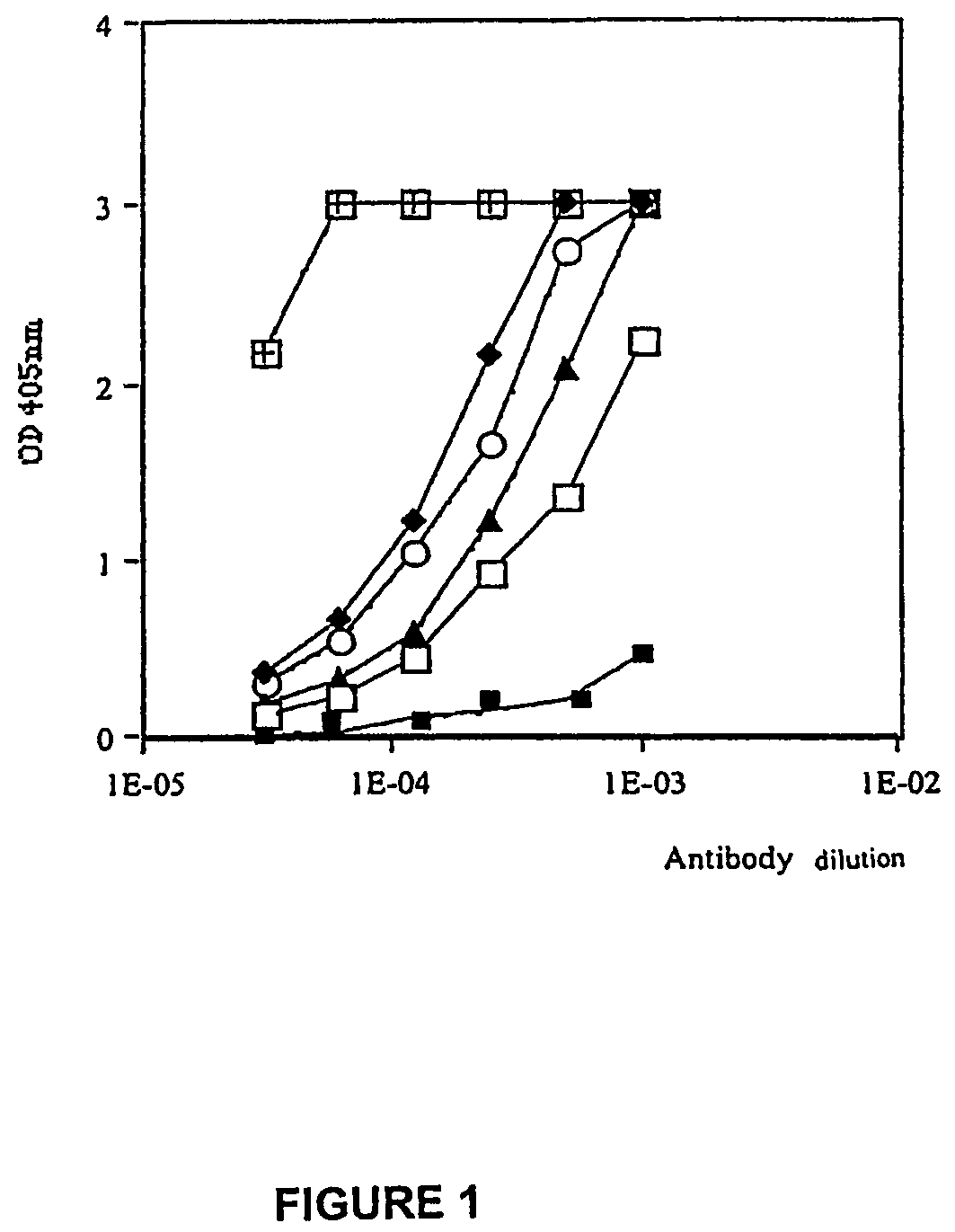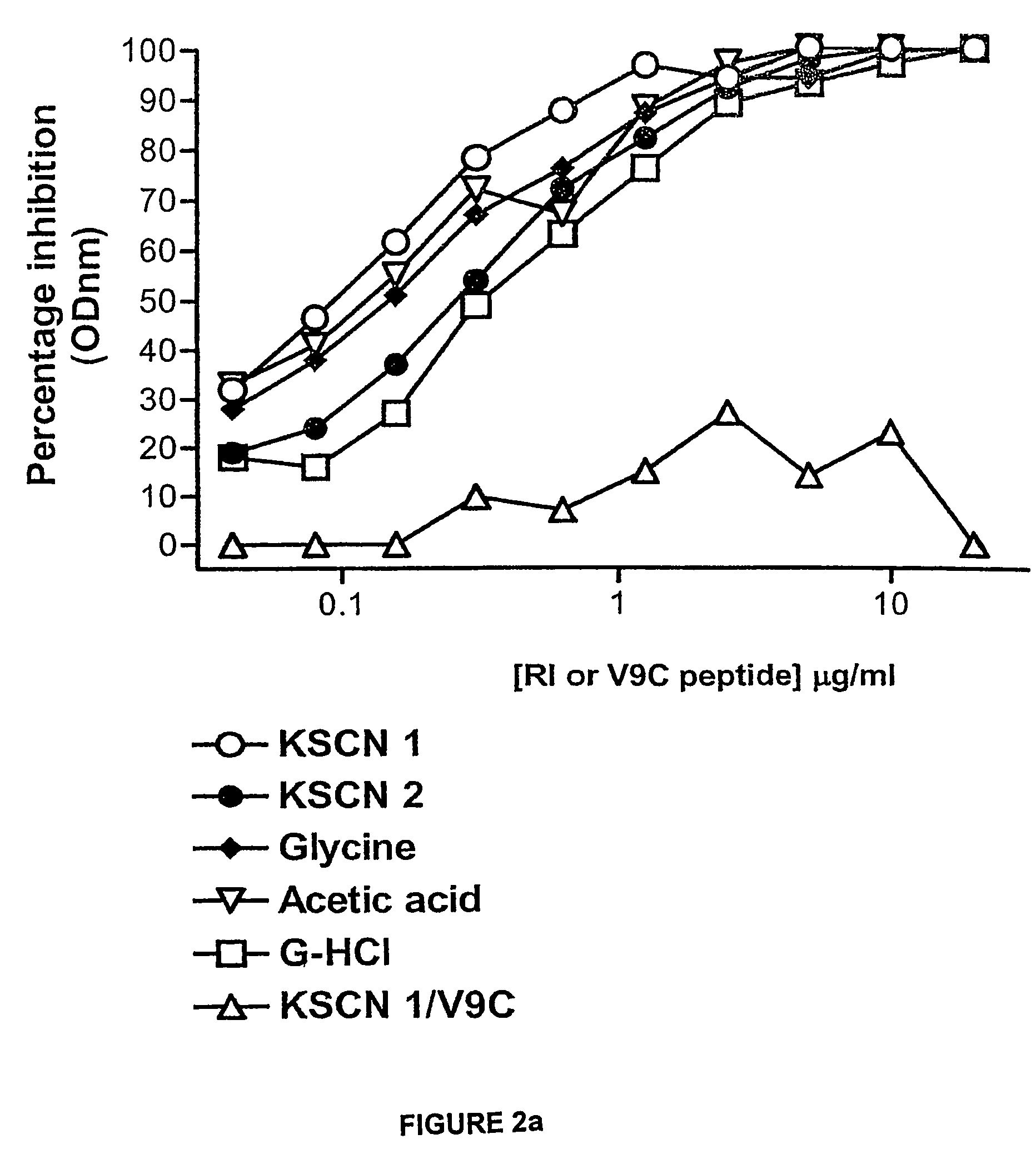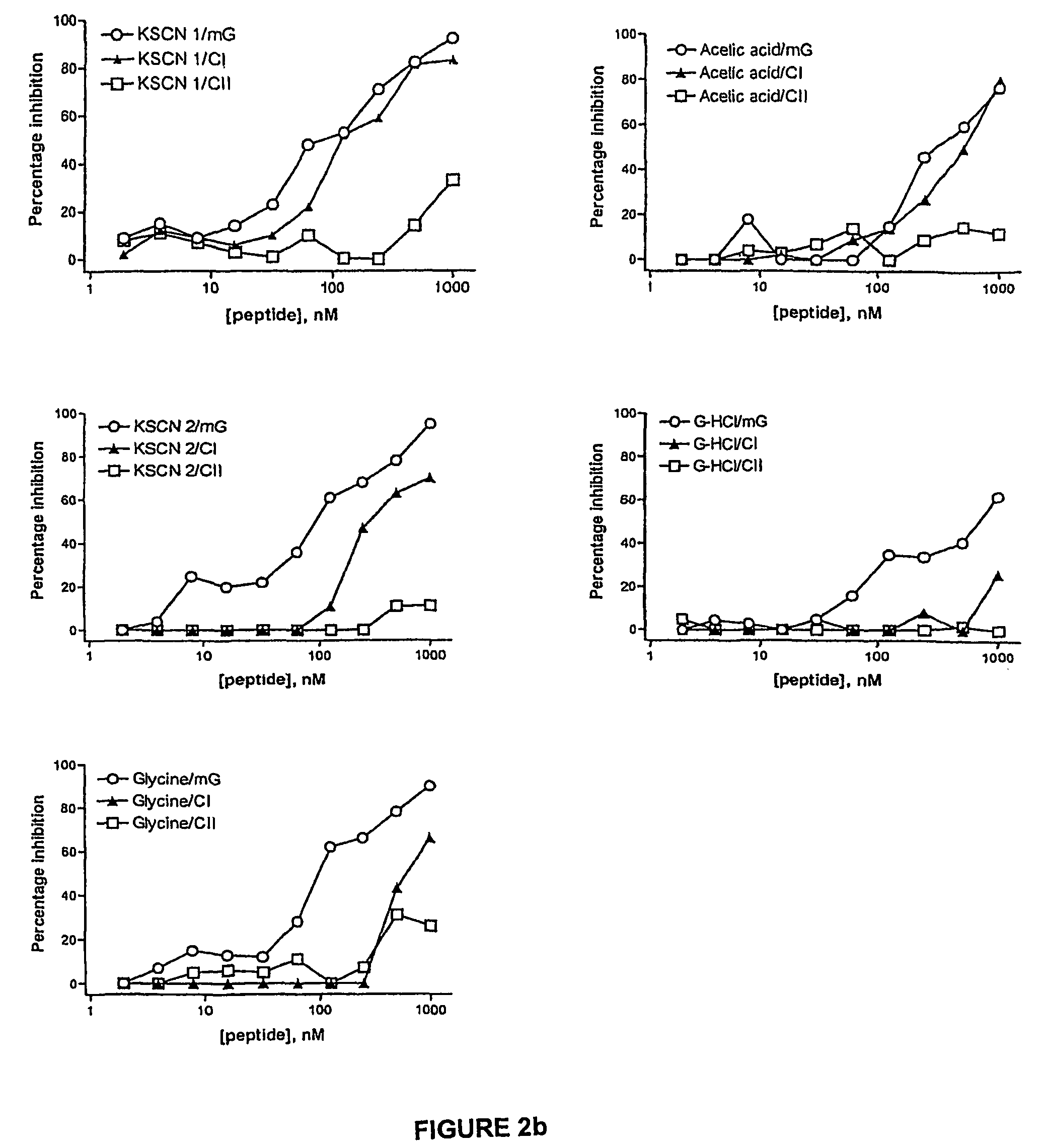Retro-inverso gonadotropin-releasing hormone peptide and vaccine composition
a technology of retro-inverso gonadotropin and releasing hormone, which is applied in the direction of peptide/protein ingredients, antibody medical ingredients, carrier-bound antigen/hapten ingredients, etc., can solve the problems of less beef obtained from adult female cattle, loss of value of pregnant animals, and loss of body tissue in adult female cattle, etc., to reduce the number of injections
- Summary
- Abstract
- Description
- Claims
- Application Information
AI Technical Summary
Benefits of technology
Problems solved by technology
Method used
Image
Examples
first mice example (example 1)
[0065]Nine male BALB / c mice (Janvier, France), nine weeks of age, were immunised intraperitoneally (i.p.) with either 25 μg / mouse RI-GnRH conjugated with MAO (n=5) or saline buffer (n=4). The primary injections were given in CFA supplemented with 200 μg m-BSA. These were followed by two-booster injections in IFA and m-BSA at day 15 and 45 after primary injection. The mice were weighed and bled one week after each immunisation. On day 45, males injected with RI-GnRH conjugate or saline were placed with females of proven fertility and litters observed. The males were sacrificed 75 days after primary injection for histological examination.
second mice example (example 2)
[0066]In the second experiment, four week old BALB / c mice (3 of each sex) were immunised with 25 μg / mouse unconjugated RI-GnRH coinjected with CpG (50 μg / mouse) oligonucleotide and m-BSA. A control group (2 of each sex) received saline buffer together with 50 μg / mouse CpG oligonucleotide as adjuvant (Klinman, et al., 1999) supplemented with 200 μg m-BSA. All injections were given in 10% v / v IFA. Mice were immunised at days 1, 15 and 30. They were bled and mated with partners of proven fertility at day 37 after the initial immunisation.
Antibody Purification
[0067]Serum from rabbits immunised with RI-GnRH was precipitated with saturated ammonium sulphate solution (40%) and dialysed overnight at 40° C. against PBS (pH=7.4). Sepharose 4B beads (1 mg) with activated thiol groups was used to couple 4 mM of RI-GnRH according to the standard procedures. Immunoglobulins were diluted 15 times to a final concentration of 10 mg / ml and passed through the column (100 μl / min) for three hours at 40°...
PUM
| Property | Measurement | Unit |
|---|---|---|
| concentration | aaaaa | aaaaa |
| total volume | aaaaa | aaaaa |
| flow rate | aaaaa | aaaaa |
Abstract
Description
Claims
Application Information
 Login to View More
Login to View More - R&D
- Intellectual Property
- Life Sciences
- Materials
- Tech Scout
- Unparalleled Data Quality
- Higher Quality Content
- 60% Fewer Hallucinations
Browse by: Latest US Patents, China's latest patents, Technical Efficacy Thesaurus, Application Domain, Technology Topic, Popular Technical Reports.
© 2025 PatSnap. All rights reserved.Legal|Privacy policy|Modern Slavery Act Transparency Statement|Sitemap|About US| Contact US: help@patsnap.com



